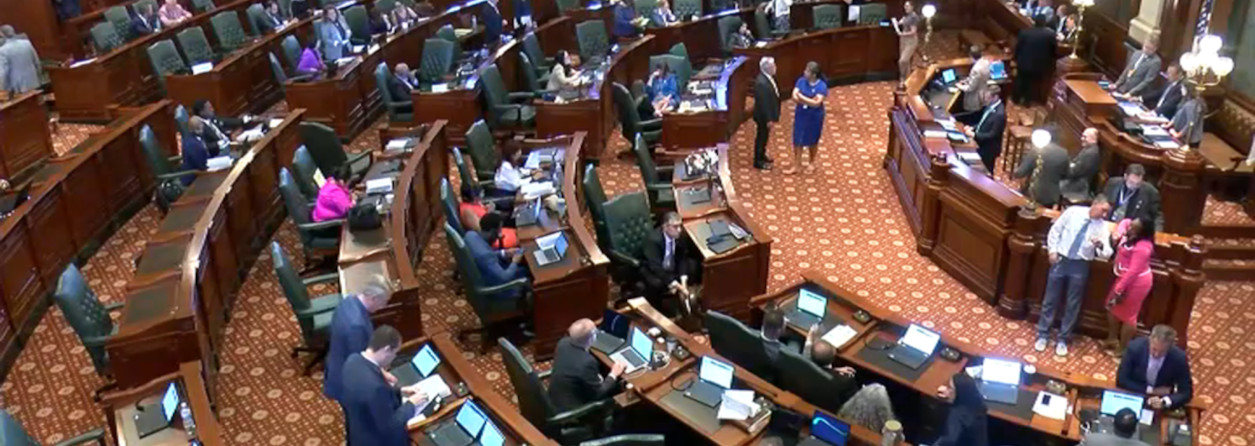The Illinois Senate’s approval of a state budget, which notably included a tax rate increase on sports betting firms, had a tangible effect on the market. Sports betting stocks, including Flutter and DraftKings, experienced a slight dip. This development, reported by various sports betting news outlets, occurred on Sunday when markets were closed for Memorial Day. Consequently, investors had their first opportunity to react to the news on Tuesday.
The tax increase was part of the amendment to House Bill 4951. The Senate passed it Sunday night. Also, the House will vote on it when the legislative session resumes Tuesday.
The proposed progressive tax rate, ranging from 20% to 40%, could have severe implications for sites like DraftKings and FanDuel, which generate substantial revenue from bets. If implemented, this new tax structure would significantly increase their tax burden compared to the current 15% tax rate that has been in place since the legalization of sports betting in 2021.
Illinois Senate Passed Tax Rate Increase
 While the betting companies themselves have remained silent on the matter, a “No Tax Hike Illinois” banner promoting the Sports Betting Alliance’s arguments against the tax rate increase and encouraging Illinois residents to reach out to their representatives can be seen on the website of FanDuel, DraftKings, Fanatics Sportsbook, and BetMGM. Reports indicate that lobbyists for sports betting in Illinois have discussed the possibility of significant operators like DraftKings and FanDuel leaving the state due to the tax with politicians.
While the betting companies themselves have remained silent on the matter, a “No Tax Hike Illinois” banner promoting the Sports Betting Alliance’s arguments against the tax rate increase and encouraging Illinois residents to reach out to their representatives can be seen on the website of FanDuel, DraftKings, Fanatics Sportsbook, and BetMGM. Reports indicate that lobbyists for sports betting in Illinois have discussed the possibility of significant operators like DraftKings and FanDuel leaving the state due to the tax with politicians.
If the modified measure were to pass the Illinois House this week and be approved by Gov. J.B. Pritzker, Illinois would have one of the highest sports-betting taxes in the nation, behind only New York, which taxes betting businesses at 51%. The top end of the scale would be 40%.
While sports betting is legal in most states, some have explored or implemented tax increases in response to the gambling industry’s soaring profits due to this newfound legality. Thus, some people have second thoughts on learning how to become a bookie.
States Considering Tax Increases
An increase in legislative efforts to levy more taxes on sports betting has obvious justifications. The sports betting industry is booming, with 2023 expected to break all previous records for total handle and sportsbook income. And operators still want to conduct business in New York, even if they previously opposed it. The state routinely leads the nation in monthly state-level betting volume.
In recent months, states such as Illinois, Ohio, and Colorado have contemplated increasing taxes on casino corporations. Bookmakers have complained that they are already paying their fair share in taxes and have stated that if taxes were to be raised, they would have no choice but to reduce customer promotions and give poorer odds.
As of 11:23 a.m. ET Tuesday, DraftKings shares were trading at $35.76, marking a 12% decline and their lowest level since mid-January. Although it is still up roughly 6% for the year, FanDuel parent company Flutter’s stock dropped over 7% to $190.24. The tax increases did not affect the top sportsbook pay per head companies of 2024.




